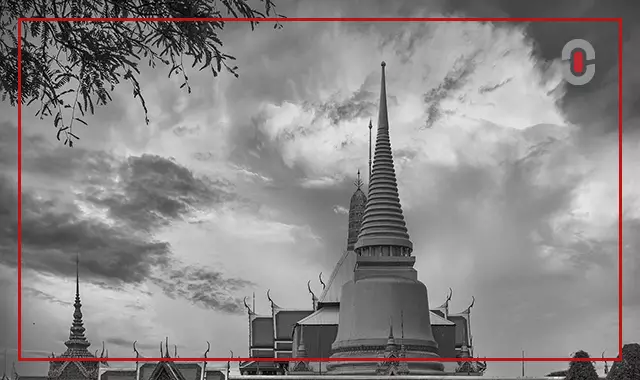AI Overview
| Category | Summary |
| Topic | Navigating Thailand’s Mourning Period with Cultural Sensitivity |
| Purpose | To guide global brands and localization buyers on how to adapt marketing, messaging, and operations during Thailand’s national mourning period with empathy, accuracy, and respect. |
| Key Insight | Localization is not only linguistic adaptation — it is cultural intelligence in action. Understanding Thailand’s emotional and legal landscape during mourning periods builds trust and prevents reputational risks. |
| Best Use Case | Ideal for localization managers, brand strategists, and marketing teams working with Thai markets or preparing communication campaigns in culturally sensitive contexts. |
| Risk Warning | Misaligned tone, visual inconsistency, or culturally insensitive language during national mourning can cause public backlash or violate local norms. |
| Pro Tip | Integrate a “Cultural Tone Review” step in your localization workflow for Thailand between October and December 2025 to ensure empathy and compliance. |
Cultural awareness isn’t optional in localization; it’s operational intelligence.
Here’s how brands can navigate Thailand’s mourning period for Queen Sirikit with respect, continuity, and cultural precision.
A Nation in Reflection
Thailand has entered a period of national mourning following the passing of Her Majesty Queen Sirikit, the Queen Mother, an iconic figure beloved across generations for her contribution to Thai culture, crafts, and rural development.
While economic activity continues, the tone of public life has changed. Flags fly at half-mast, festivals are subdued, and citizens express collective grief in quiet and respectful ways.
For global enterprises with a presence in Thailand, or for those planning to enter the market, this moment calls for more than logistical adjustments. It requires cultural literacy and the ability to sense how emotion, communication, and respect intersect in Thai society.
At 1-StopAsia, we view this not as a disruption but as a reminder of what true localization means: understanding not just the language, but the moment.
Business and Communication in a Time of Mourning
The mourning period is not a pause in economic life; it’s a recalibration of tone.
For Thai consumers, loud celebrations or exaggerated promotions can feel out of place.
For global brands, this means reviewing the form, frequency, and emotional weight of every message directed at Thai audiences.
Here’s what typically changes during such periods:
- Public events and marketing activities are scaled down or postponed.
- Entertainment and nightlife promotions operate under reduced tone or schedule.
- Media and digital advertising adjust visuals and copy toward restraint and respect.
In practice, this doesn’t mean silence. It means alignment. Every message, campaign, and image must feel attuned to the country’s emotional rhythm.
Companies that handle this transition with care often strengthen their brand trust. Those that ignore it risk appearing distant or tone-deaf.
What This Means for Localization Buyers
For enterprises relying on localization teams to adapt global campaigns for Thailand, translation alone is not enough.
Localization must now include cultural sensitivity as a measurable deliverable.
1-StopAsia’s Thai linguists have identified three critical areas where global brands must adjust:
1. Tone Mismatch
A message that sounds energetic or fun in English may feel disrespectful in Thai during mourning.
Localized tone should move from celebratory to commemorative, focusing on reflection, gratitude, and continuity rather than excitement.
2. Visual Inconsistency
Bright campaign palettes or lively festival scenes may clash with the national mood.
Designs should use neutral or monochrome backgrounds, complemented by subtle gold or silver colors that convey dignity and reverence in Thai visual culture.
3. Linguistic Nuance
Certain idioms, humor, or colloquial expressions can be inappropriate during solemn times.
Translators should adapt emotionally charged language and avoid puns, irony, or exaggeration.
We recommend that localization buyers request an additional cultural tone review for any Thai deliverables scheduled between October and December 2025.
Legal and Cultural Sensitivity: Why Precision Matters
Thailand’s deep respect for its monarchy extends beyond sentiment; it is protected by law.
During royal mourning, public behavior and communication are expected to reflect respect.
This affects both marketing content and internal communication aimed at Thai audiences.
Localization buyers should be aware of the country’s lèse-majesté regulations, which prohibit any content perceived as disrespectful toward the royal family. Even unintended phrasing or imagery can cause misunderstandings.
To minimize risk and ensure alignment:
- Verify all royal titles and references for accuracy and capitalization.
- Avoid humor, parody, or speculative commentary about the monarchy.
- Keep campaign imagery neutral and dignified.
- Avoid scheduling posts or PR announcements on official memorial days.
This is not just compliance; it’s cultural due diligence. Brands that understand and respect these norms demonstrate maturity and care for the markets they serve.
Managing Localization Operations During the Mourning Period
For companies running active Thai projects, a few operational adjustments can make a major difference:

- Review timelines: Thai reviewers or in-country teams may have commemorative observances or limited availability.
- Introduce a Cultural QA step: A final check for tone, visuals, and phrasing by native experts.
- Centralize approvals: Ensure that no automated global campaigns are pushed to Thai channels without manual review.
- Document cultural guidelines: Brief global marketing teams so they understand the reasoning behind any changes or delays.
If necessary, introduce a temporary workflow flag titled “TH_MOURNING” in your project management system. When a project targets Thailand during this period, it should automatically trigger a cultural sensitivity checklist that includes tone audit, visual review, and local confirmation.
This ensures that your messages remain accurate, appropriate, and on schedule even under sensitive conditions.
Respect as Strategic Advantage
Empathy is not just a moral value; it’s a strategic one.
Brands that show cultural respect build stronger local trust, which leads to lasting customer loyalty.
The mourning period can be reframed as an opportunity to demonstrate commitment to Thai values:
- Adjust visuals and tone to reflect the nation’s reflective mood.
- Support Thai heritage initiatives that align with Queen Sirikit’s legacy, such as silk craftsmanship and community projects.
- Share messages of empathy and unity instead of promotion.
Such gestures are remembered long after the mourning ends. They show that a brand is not only in Thailand, but with Thailand.
Conclusion: Localization as Cultural Empathy
Thailand’s mourning period reminds every global brand of a timeless truth: communication is never neutral.
Every word, color, and gesture carries meaning shaped by culture and emotion.
For enterprises expanding into Asia, this is a moment to elevate localization from an operational process to a practice of cultural intelligence.
Handled with care, sensitivity becomes strength.
In that strength lies the real power of localization transforming empathy into connection, and translation into trust.
If your organization operates in Thailand or plans to enter the market in 2026, connect with our Asia Market Team.
We’ll help you communicate in a way that respects the moment and strengthens your long-term presence in the region.
